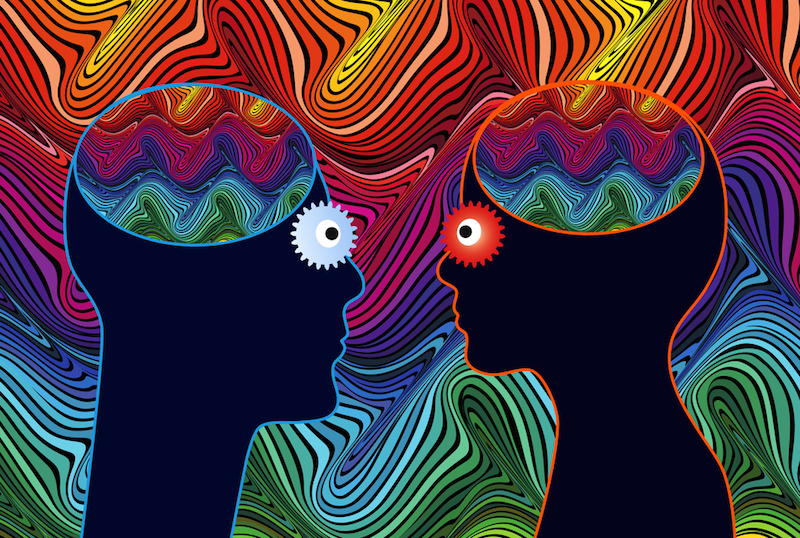Scientists Made a Startling Discovery After Dosing People with LSD

Get the world’s most fascinating discoveries delivered straight to your inbox.
You are now subscribed
Your newsletter sign-up was successful
Want to add more newsletters?

Delivered Daily
Daily Newsletter
Sign up for the latest discoveries, groundbreaking research and fascinating breakthroughs that impact you and the wider world direct to your inbox.

Once a week
Life's Little Mysteries
Feed your curiosity with an exclusive mystery every week, solved with science and delivered direct to your inbox before it's seen anywhere else.

Once a week
How It Works
Sign up to our free science & technology newsletter for your weekly fix of fascinating articles, quick quizzes, amazing images, and more

Delivered daily
Space.com Newsletter
Breaking space news, the latest updates on rocket launches, skywatching events and more!

Once a month
Watch This Space
Sign up to our monthly entertainment newsletter to keep up with all our coverage of the latest sci-fi and space movies, tv shows, games and books.

Once a week
Night Sky This Week
Discover this week's must-see night sky events, moon phases, and stunning astrophotos. Sign up for our skywatching newsletter and explore the universe with us!
Join the club
Get full access to premium articles, exclusive features and a growing list of member rewards.
Scientists in Switzerland dosed test subjects with LSD to investigate how patients with severe mental disorders lose track of where they end and other people begin.
Both LSD and certain mental disorders, most notably schizophrenia, can make it difficult for people to distinguish between themselves and others. And that can impair everyday mental tasks and social interactions, said Katrin Preller, one of the lead authors of the study and a psychologist at the University Hospital of Psychiatry in Zurich. By studying how LSD breaks down people's senses of self, the researchers aimed to find targets for future experimental drugs to treat schizophrenia.
"Healthy people take having this coherent 'self' experience for granted," Preller told Live Science, "which makes it difficult to explain why it's so important."
Depression, she said, also relates to the sense of self. Whereas people with schizophrenia can lose track of themselves entirely, people with depression tend to "ruminate" on themselves, unable to break obsessive, self-oriented patterns of thought. [7 Ways to Recognize Depression in 20-Somethings]
But this kind of phenomenon is challenging to study, Preller said.
"If you want to investigate self-experience, you have to manipulate it," Preller said. "And there are very few substances that can actually manipulate sense of self while patients are lying in our MRI scanner."
One of the substances that can, however, is LSD. And that's why this experiment happened in Zurich, Preller said. Switzerland is one of the few countries where it's possible to use LSD on human beings for scientific research. (Doing so is still quite difficult, though, requiring lots of oversight.)
Get the world’s most fascinating discoveries delivered straight to your inbox.
The experiment itself didn't sound like the most exciting use of the drug for the test subjects, all of whom were physically healthy and did not have schizophrenia or other illnesses After taking the drug, the subjects lay inside MRI machines with video goggles strapped to their faces, trying to make eye contact with a computer-generated avatar. Once they accomplished this, the subjects then tried to look off at another point in space that the avatar was also looking at. This is the kind of social task, Preller said, that's very difficult if your sense of self has broken down.
Previous studies on animals had suggested that 5-HT2 played a key role in LSD's ability to mess with sense of self. The researchers suspected that blocking the receptor in humans might somewhat reduce the effect of LSD.
But it turned out to more than "somewhat" block the effect: There was no difference between the performance of subjects who took ketanserin and the placebo group. [Why LSD's Effects Last So Long]
"This was surprising to us, because LSD interacts with a lot of receptors [in the brain], not just 5-HT2," Preller said.
But LSD's most dramatic measurable effects entirely abated when subjects first took ketanserin.
That tentatively indicates that 5-HT2 plays an important role in regulating sense of self in the brain, Preller said. The next step, she added, is to work on drugs that target that receptor and see if they might alleviate some of the symptoms of severe psychiatric illnesses that affect the sense of self.
The paper detailing the study's results was published today (March 19) at The Journal of Neuroscience.
Originally published on Live Science.

 Live Science Plus
Live Science Plus











